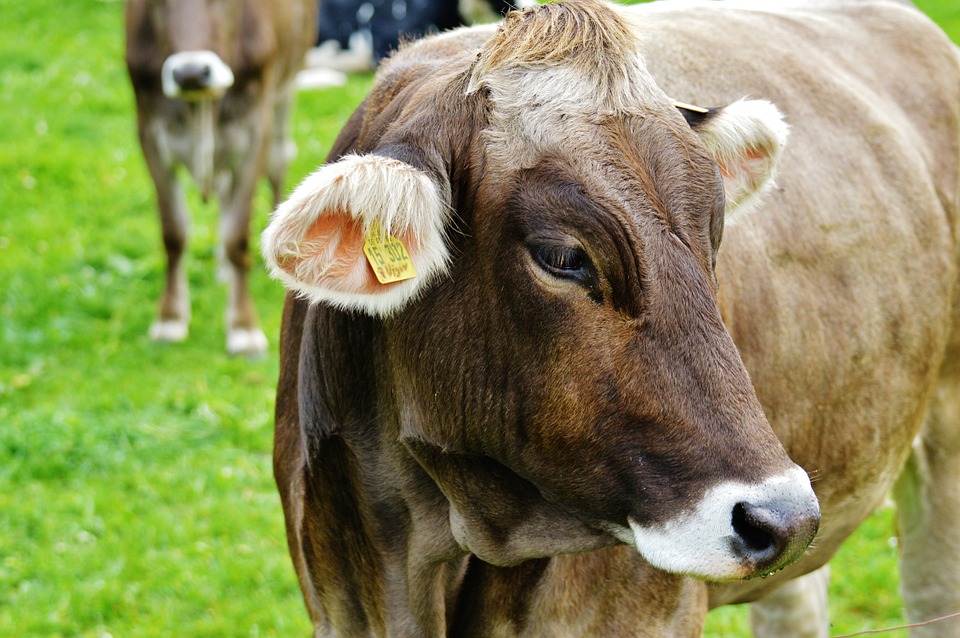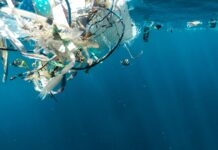Meat industry under pressure, after Cowspiracy revealed unsustainable practices.
Since we were little, we were taught that cows are happy big animals that give us milk for our breakfasts; chickens are clumsy, somewhat foolish, creatures that give us eggs for our omelets and pigs are our eternal fountains of bacon. And they all happily lived in Old Mac Donald’s farm. It was a cheerful picture. And climate change was not part of that picture.
Climate change has always been about reckless industries, polluting cars and oil magnates, all part of an inconvenient truth. But this image has been changing in the past years. Slowly, people are starting to realize that the meat industry is also part of this inconvenient truth’s club. It may even be the biggest stakeholder.
Cowspiracy – the turning point
For many, the turning point was Cowspiracy. In 2014, this Kip Andersen’s documentary brought to the public’s attention what few studies had already shown before: animal agriculture is the planet’s most destructive industry, even though it remains unchallenged by environmental organizations and governmental policies. All the overwhelming information presented in the documentary might make you doubt about the veracity of the facts but, on the Cowspiracy official website, the authors show every source they used to support their claims.
Cowspiracy’s controversial trailer:
The documentary seems to have sparked a change. After Cowspiracy more organizations, institutions and webpages started to raise awareness about the meat industry. One of them is James Smith. After having watched Cowspiracy, James created an infographic where you can grasp the impact of livestock product consumption in the UK. Once you open the page, numbers start running, showing the live impact of meat consumption in the UK. After opening the infographic page, not all numbers shown start from zero. James explained United Academics this is a slight delay from the time you click on the page until it opens. James wants to raise awareness on this issue because he believes that each individual is capable of making a change, by slowly reducing their meat consumption.
The impact of livestock production is felt on different levels, from land usage and deforestation to water shortage, from antibiotics over usage to greenhouse gas emission. Tomorrow United Academics will publish an article that explains more specifically how the meat industry is destroying the environment.
Sustainable policies
Considering that the global production of meat is expected to more than double to 465 million tons in 2050, it seems crucial that changes are made (FAO’s Livestock long shadow report).
Obviously, the economic and social importance of the meat industry cannot be overlooked. It employs more than one billion people and directly supports the livelihoods of about 600 million poor smallholder farmers in the developing world.
At the same time, while the world population is rapidly increasing, the demand for livestock products have also been increasing, especially in developing countries. Thus, we face the challenging question of how to stop this ticking environmental timebomb without hurting the world’s economy and without compromising the nutritional needs of the ever-increasing world population. The application of sustainable policies for cattle industry and heavy fines for the law violators, as it happened for oil industries, is mandatory, but requires a serious political international commitment to fight big producers’ lobbying. The final consumer also plays a crucial role: responsible meat consumption will certainly help to control the demand for livestock products.
There is no reason for us to look away from all the data we have about meat industry. Why then do we still think about pollutant cars when we think about global warming? Why don’t the happy little cows, pigs and chickens also enter this scary picture? The reasons are obviously complex, but the producers of Cowspiracy do not hesitate in giving us one: the big bosses of the major meat companies are trying to silence these facts through blackmails, threats and bribes. One of the interviewees even implies that the pressure to silence negative facts about the meat industry ‘starts at a local level and it goes all the way to the Congress’. Not even environmental organizations are safe. On the contrary: one of the major accusation is that organizations like Greenpeace are accepting money from the meat industry. These accusations were already rejected by Greenpeace itself.
Happy cows, pigs and chickens are not to blame. Rather, we need to ask consumers for more common sense, cattle producers for more responsibilities and politicians for more braveness.
References
Herrero, M., Havlik, P., Valin, H., Notenbaert, A., Rufino, M., Thornton, P., Blummel, M., Weiss, F., Grace, D., & Obersteiner, M. (2013). Biomass use, production, feed efficiencies, and greenhouse gas emissions from global livestock systems Proceedings of the National Academy of Sciences, 110 (52), 20888-20893 DOI: 10.1073/pnas.1308149110
Gorbach, S. (2001). Antimicrobial Use in Animal Feed — Time to Stop New England Journal of Medicine, 345 (16), 1202-1203 DOI: 10.1056/NEJM200110183451610
White, D., Zhao, S., Sudler, R., Ayers, S., Friedman, S., Chen, S., McDermott, P., McDermott, S., Wagner, D., & Meng, J. (2001). The Isolation of Antibiotic-Resistant Salmonella from Retail Ground Meats New England Journal of Medicine, 345 (16), 1147-1154 DOI: 10.1056/NEJMoa010315
Tilman, D., Cassman, K., Matson, P., Naylor, R., & Polasky, S. (2002). Agricultural sustainability and intensive production practices Nature, 418 (6898), 671-677 DOI: 10.1038/nature01014
Donovan, C. (2015). If FDA Does Not Regulate Food, Who Will? A Study of Hormones and Antibiotics in Meat Production American Journal of Law & Medicine, 41 (2-3), 459-482 DOI: 10.1177/0098858815591528



